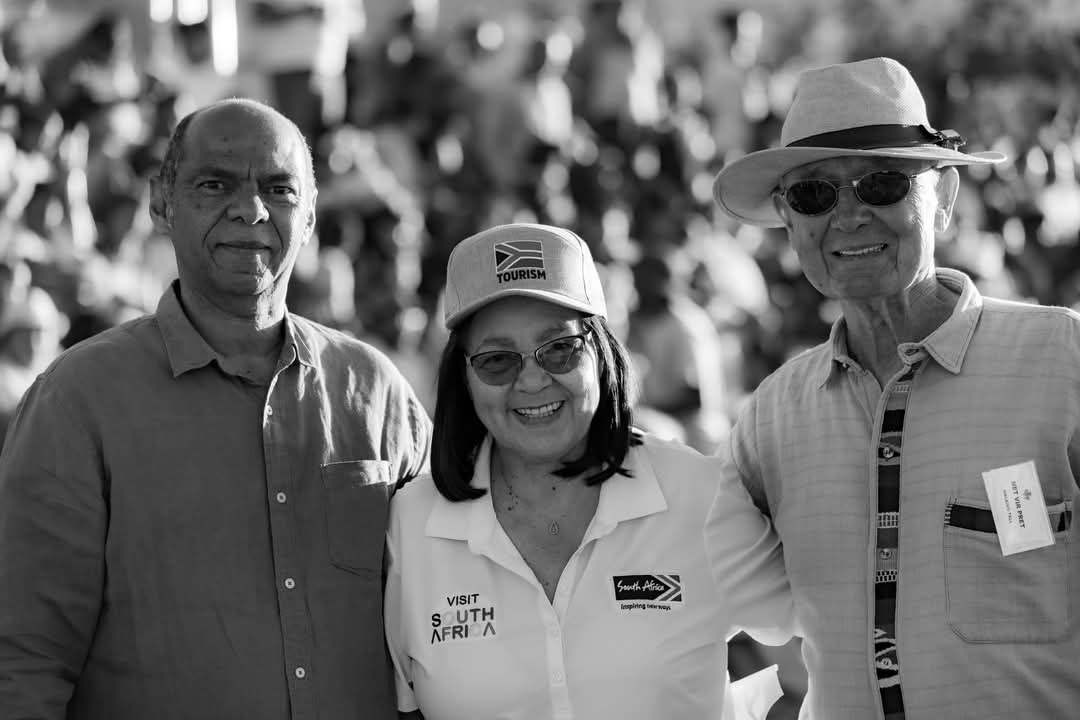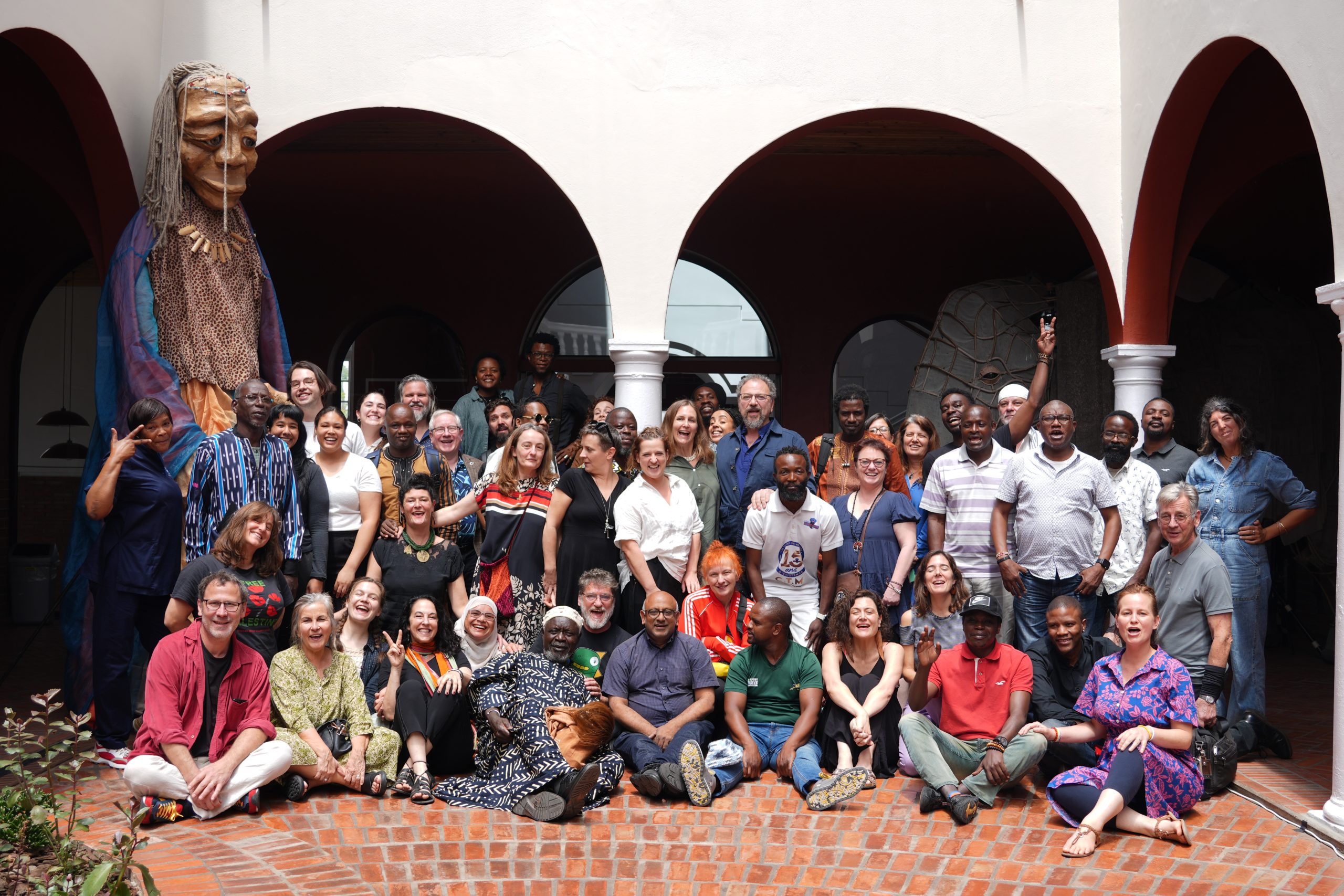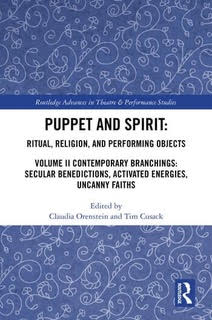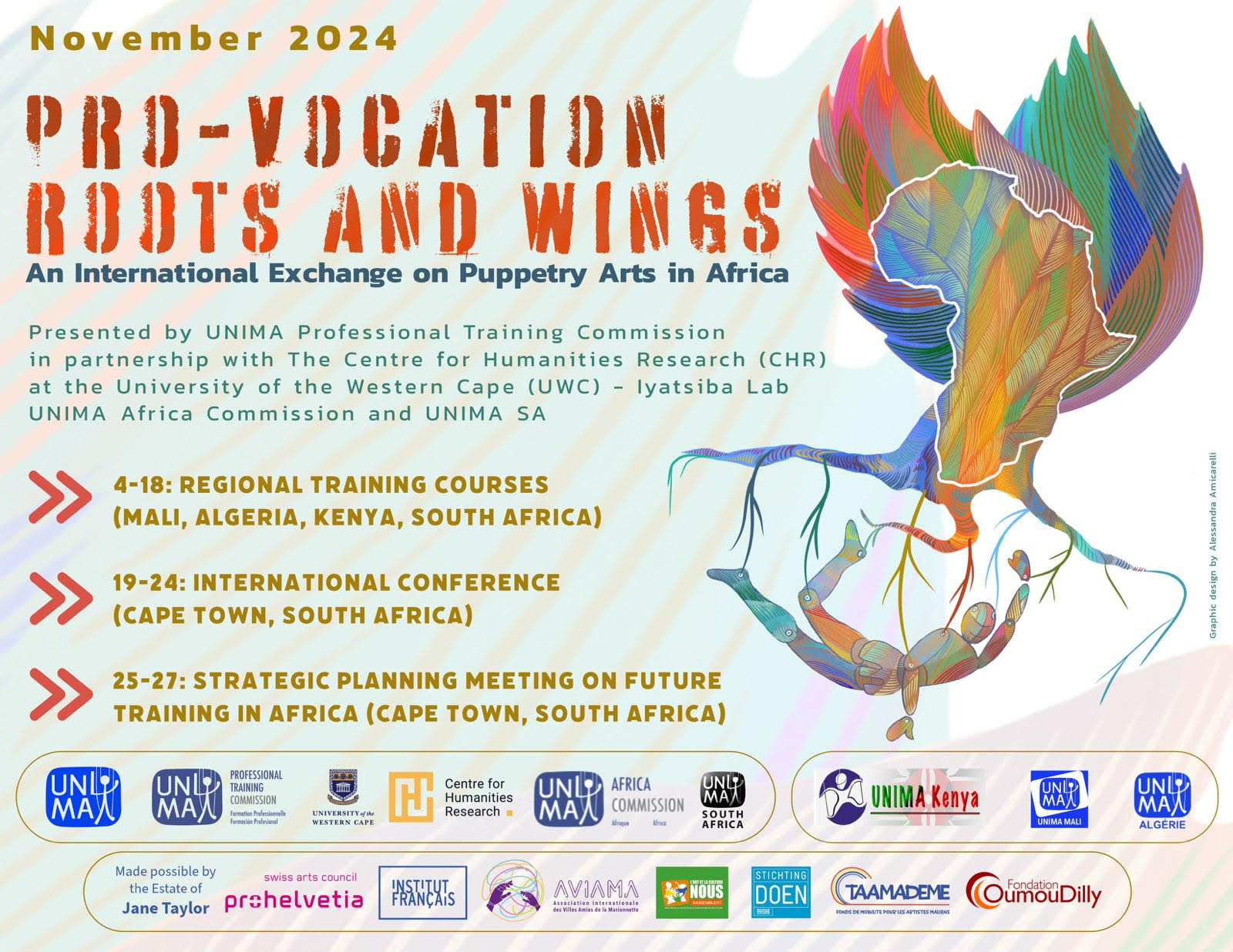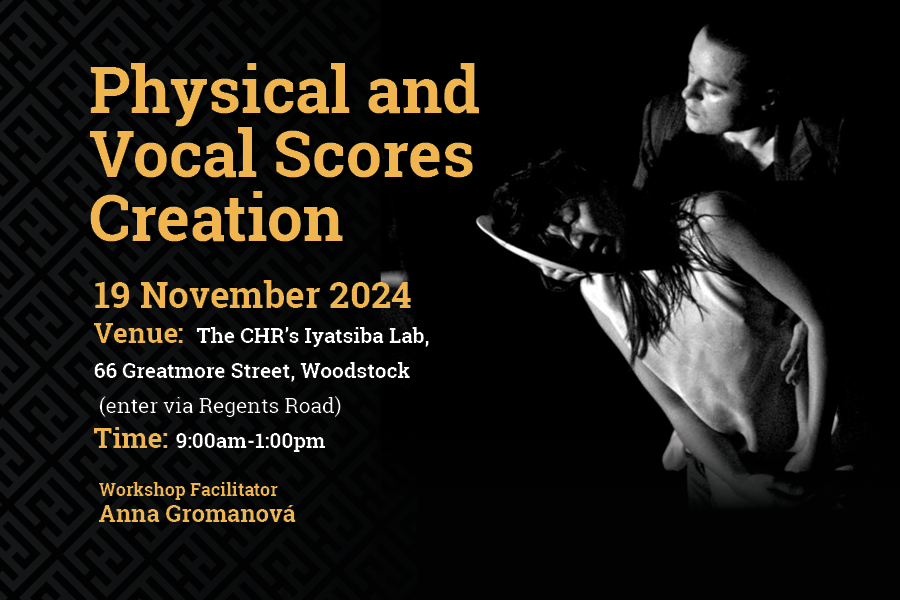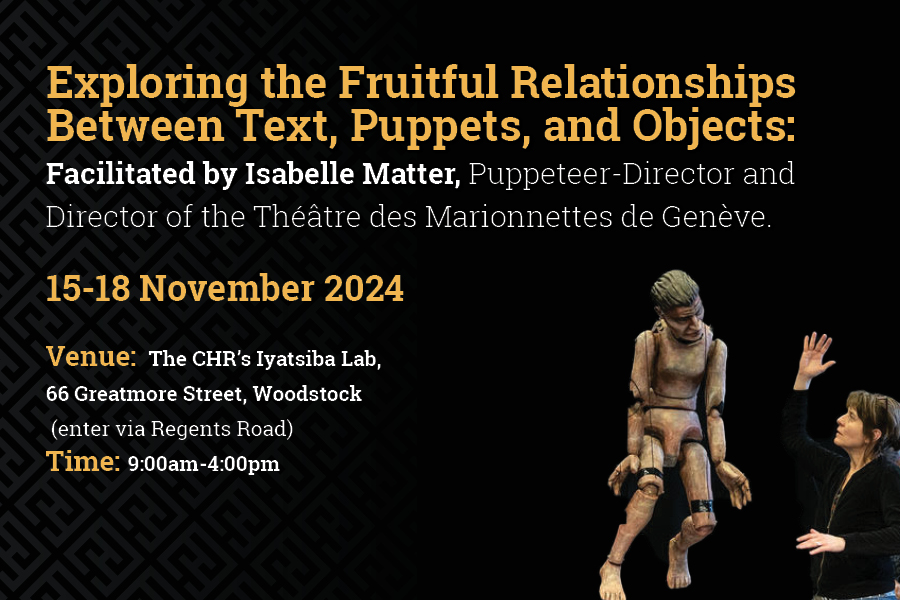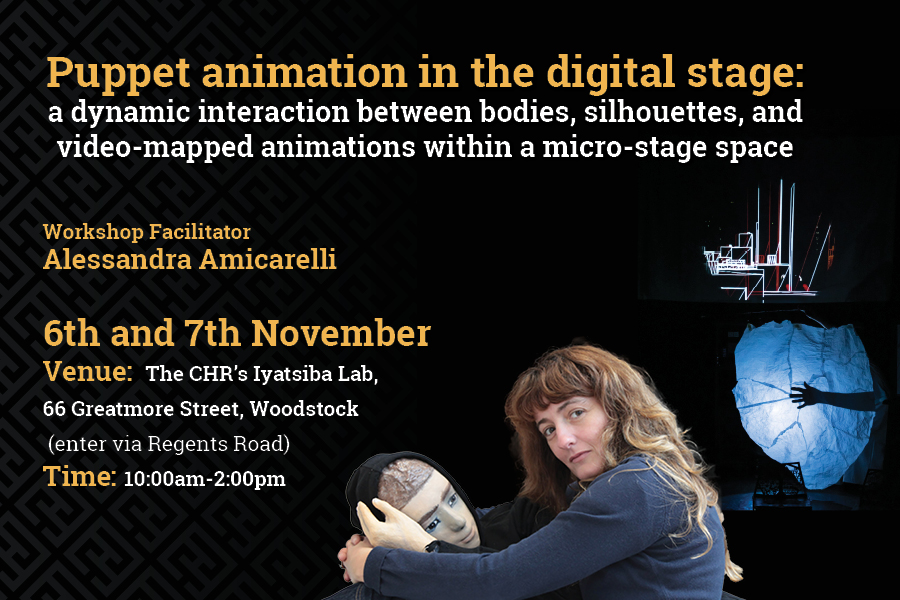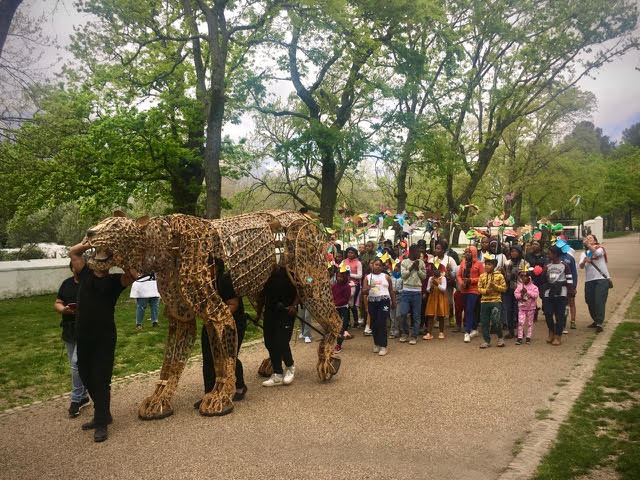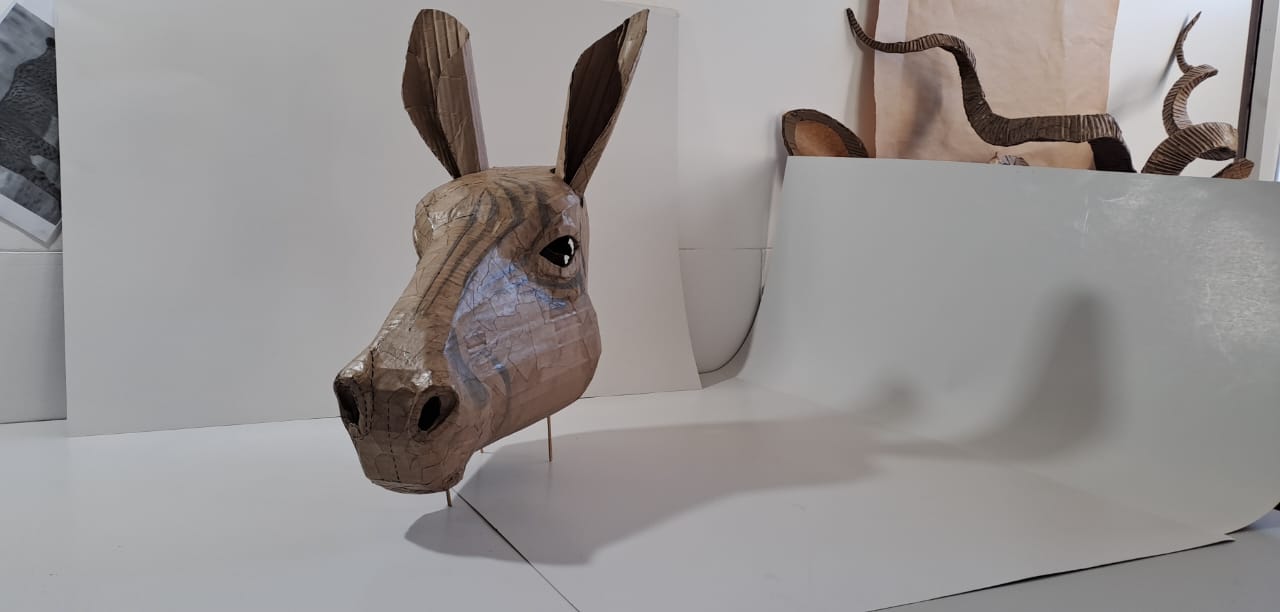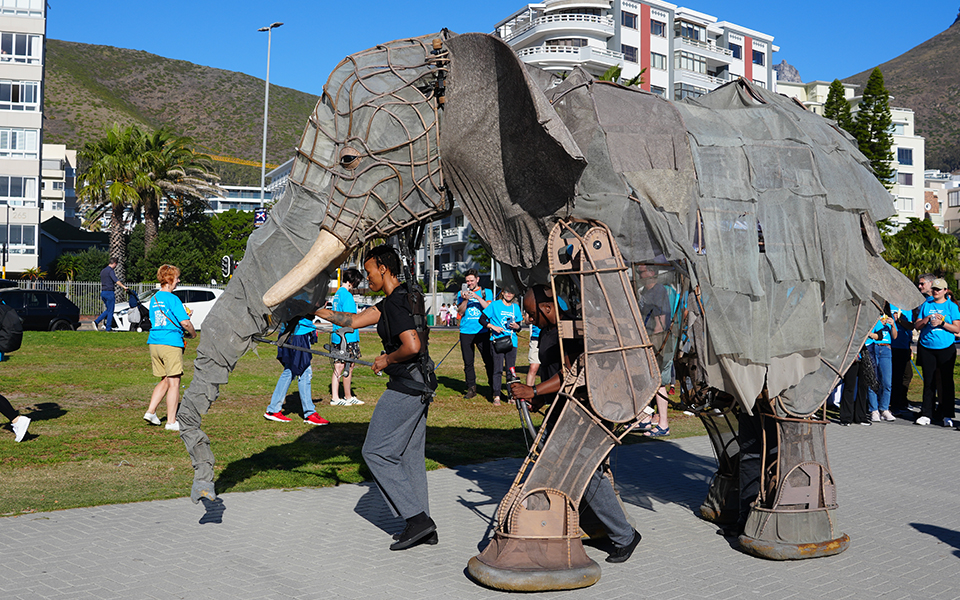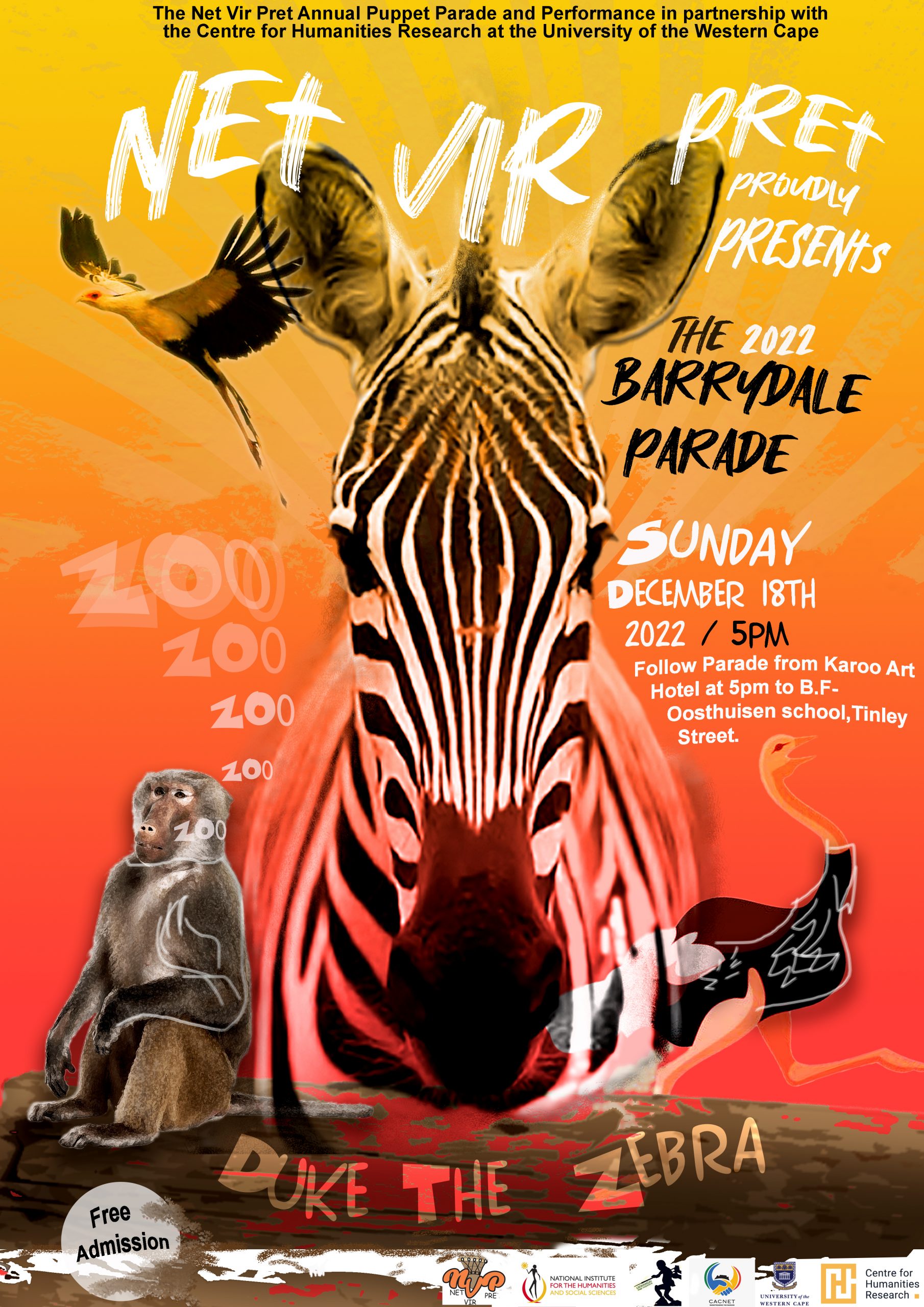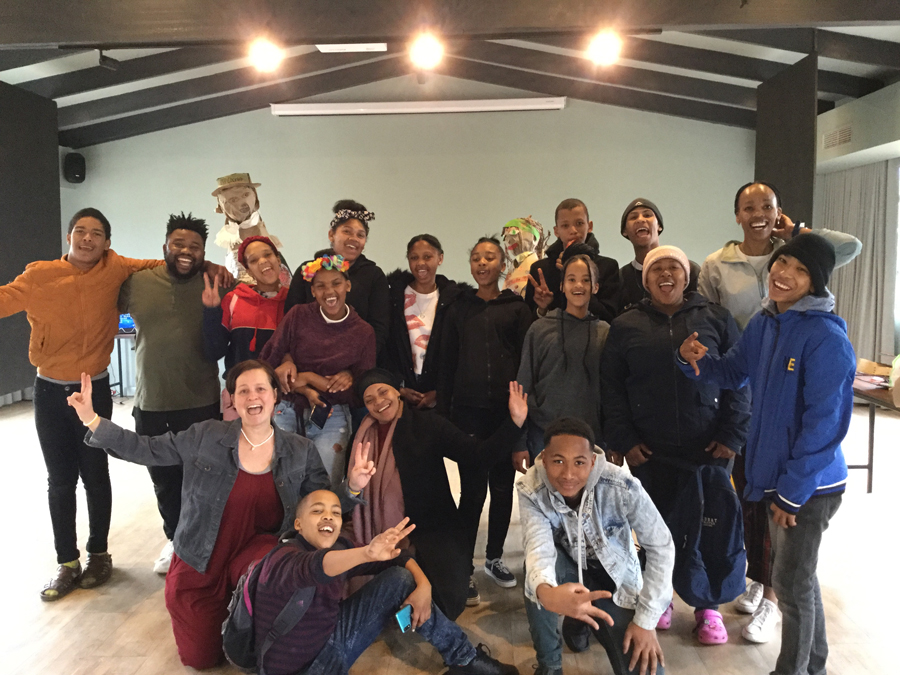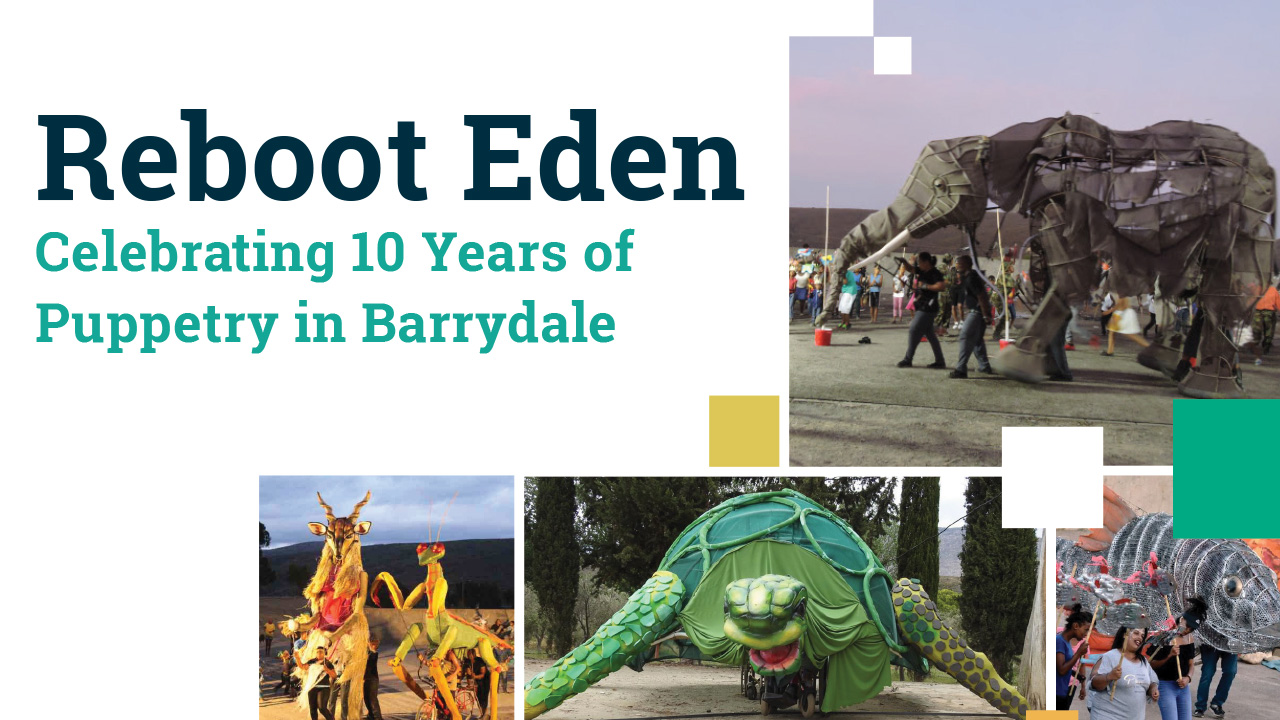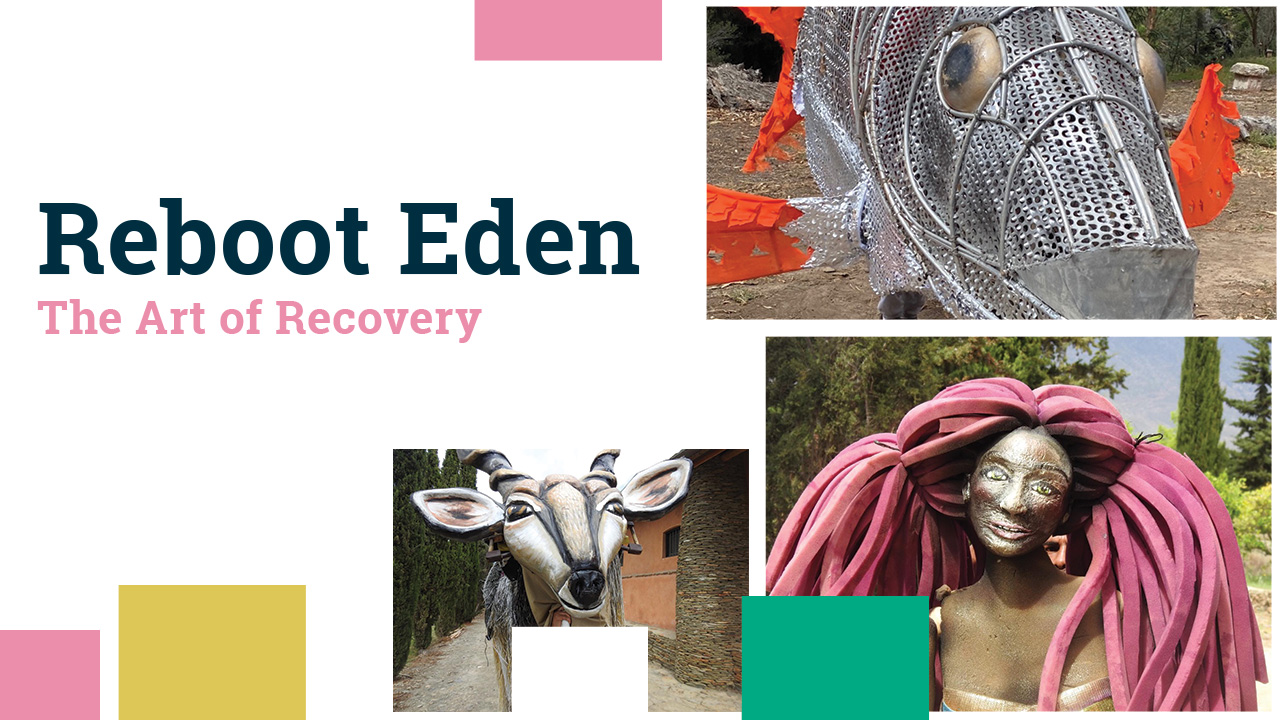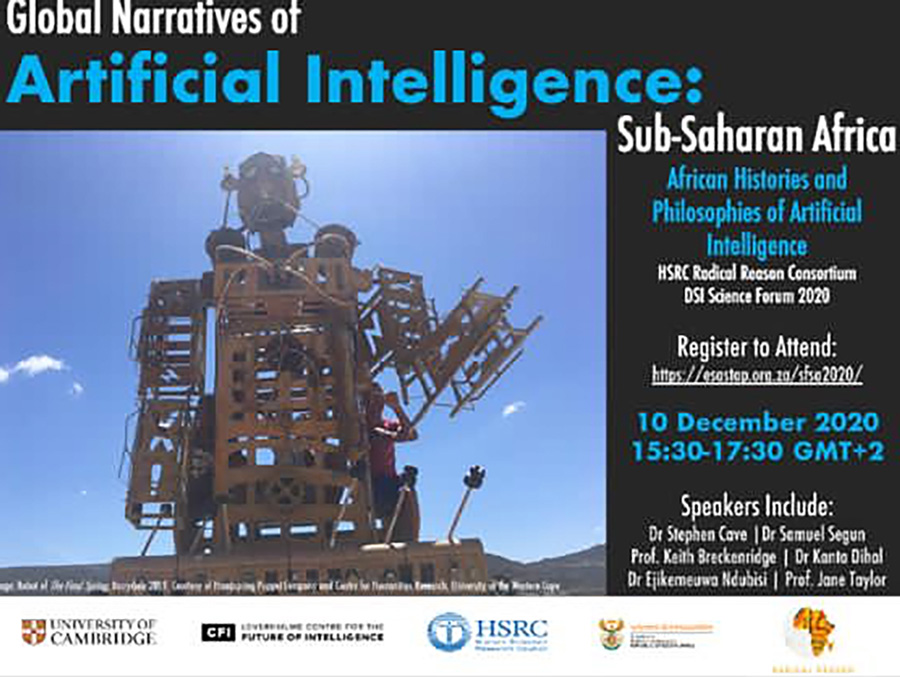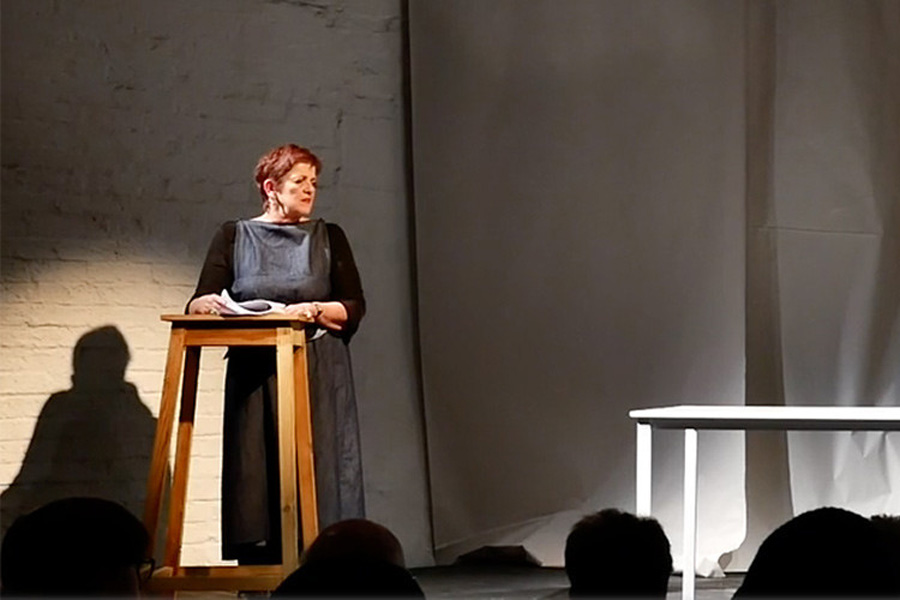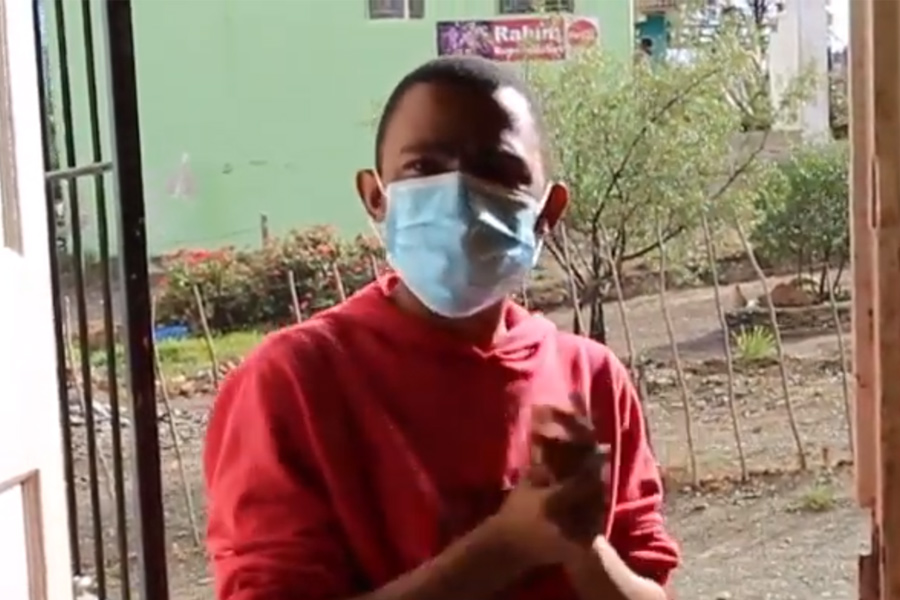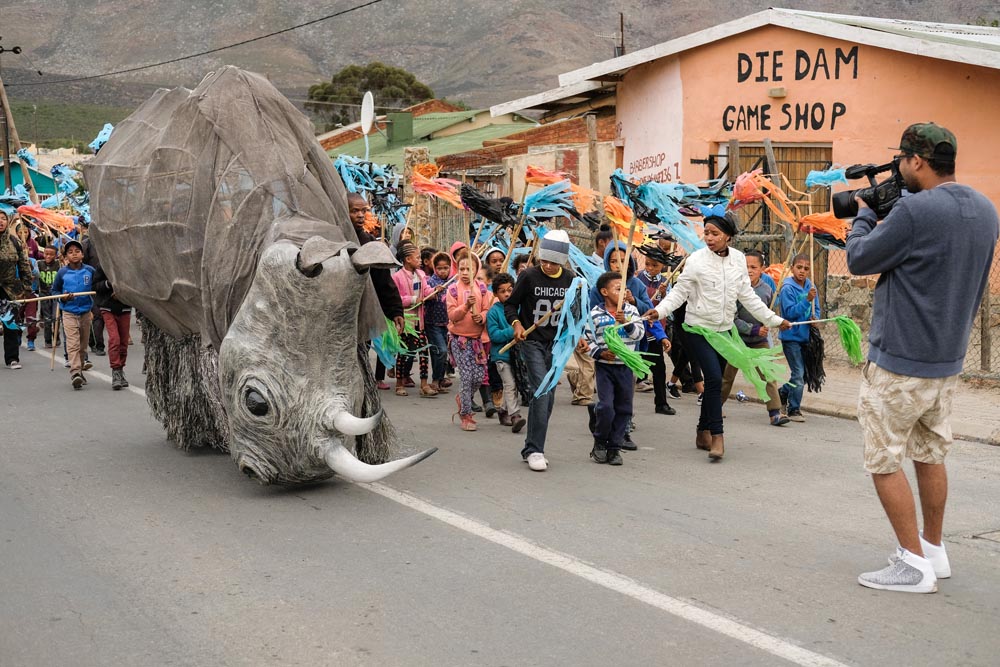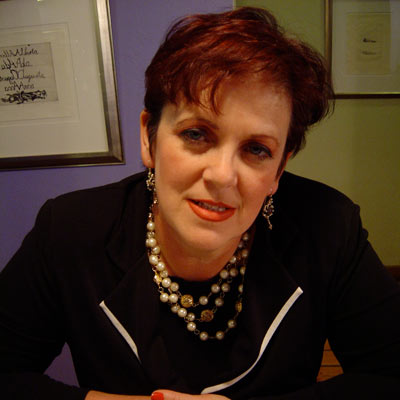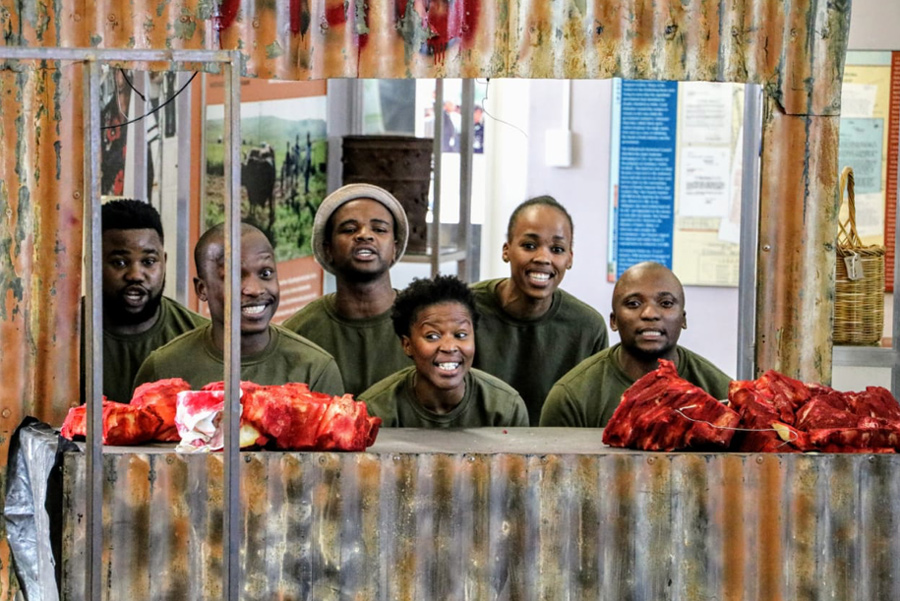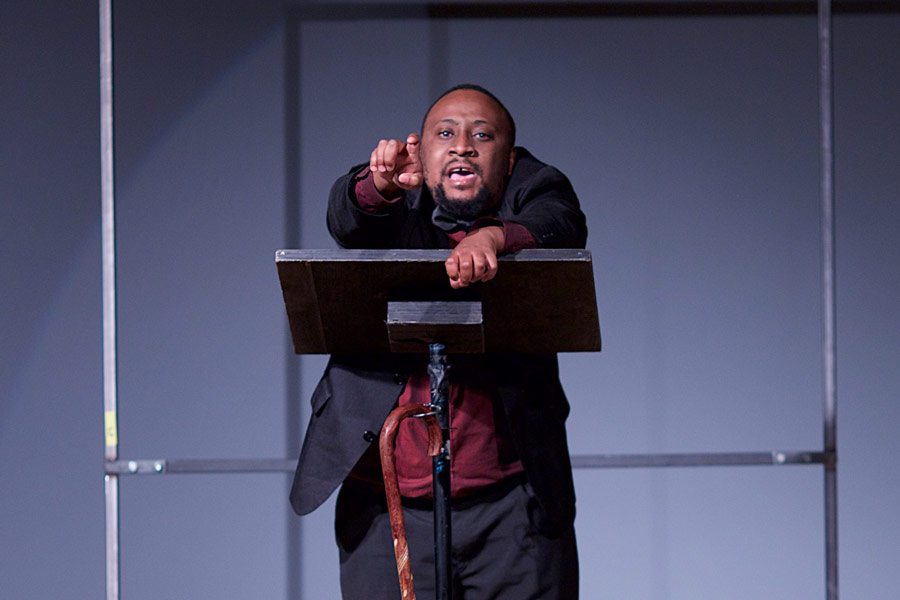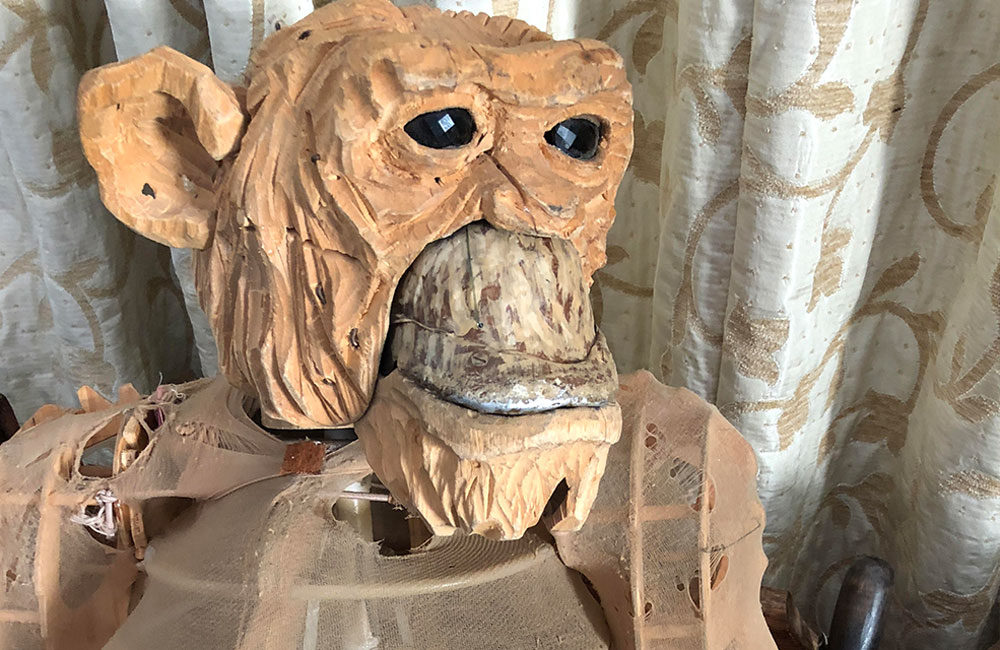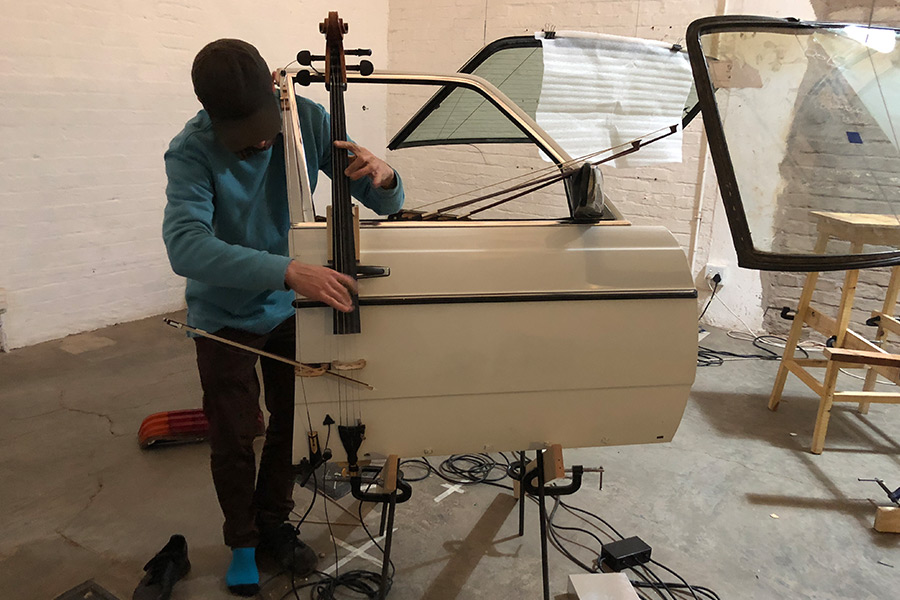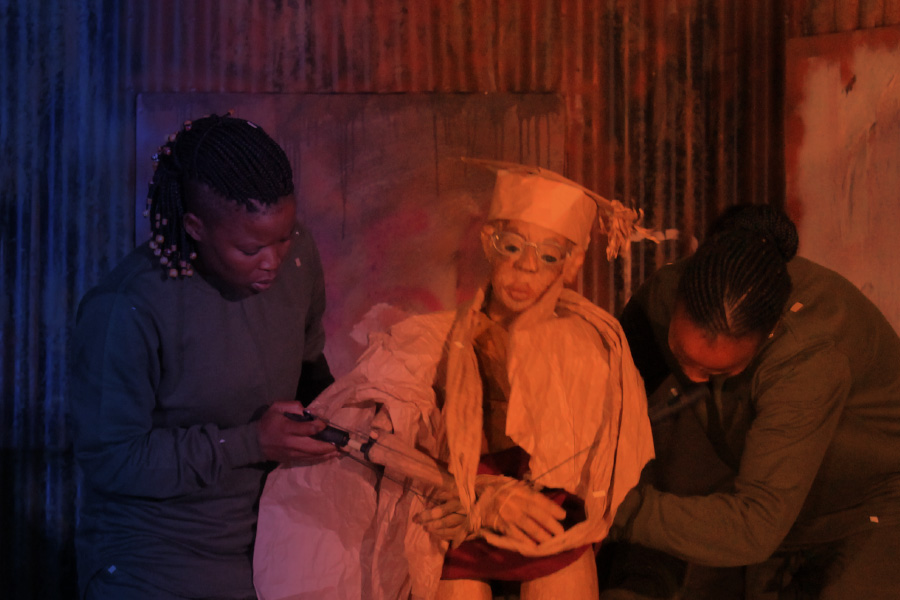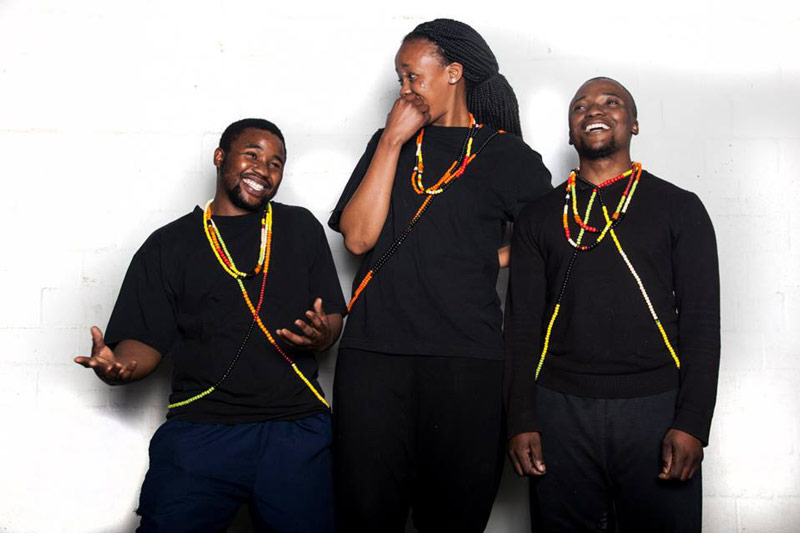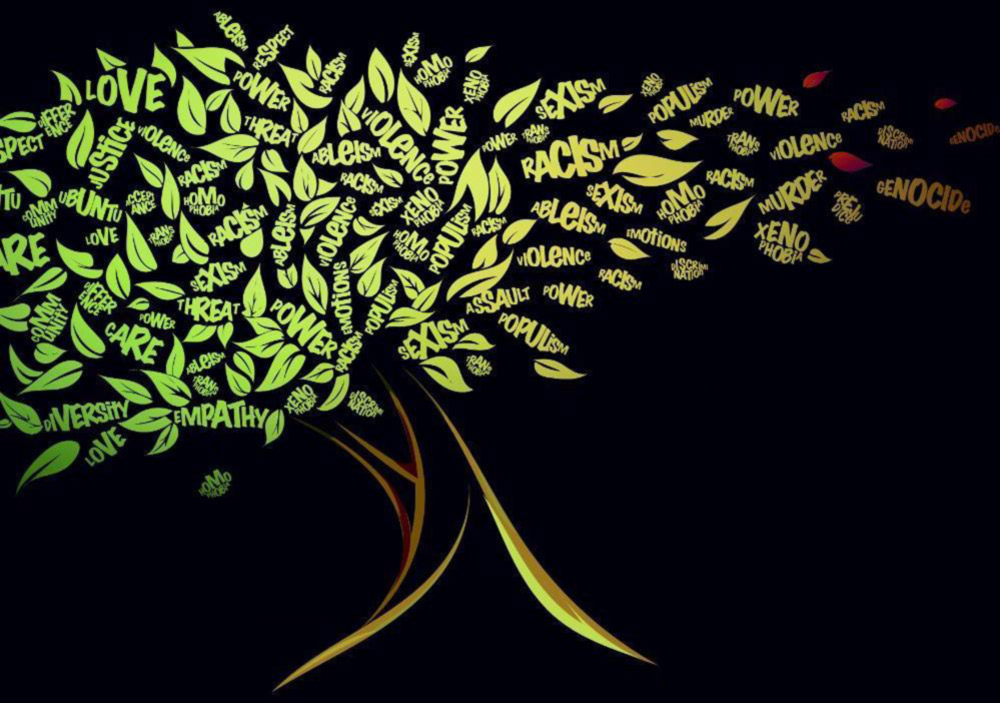LoKO is a new initiative, funded in large measure by the Andrew W Mellon Foundation, that engages with the development of the Arts of movement.
Kinetic is a descriptive formulation associated in particular ways with the modernity of the human subject and her objects, even though the concept has classical origins. While Aristotle famously wrote a short essay ‘On Motion’ in his Physics, where he defines motion as a potentiality within, the term first arises in English in the nineteenth century, and the formulation kinetic art dates from the 1960s. The embrace of mobility, speed, change are all indices of modernity in distinct ways. In recent years, it is noteworthy that puppetry arts have become a dominant aesthetic idiom within both theatre and gallery spaces; and it has had a broad impact on film, aesthetic theory, and design. The Centre for Humanities Research at the University of the Western Cape has embraced the conceptual idea of motion as a cornerstone of its theoretical explorations of the Subject and its Objects. We have established a pioneering relationship with Handspring Puppet Company , makers of the celebrated theatrical phenomenon, War Horse. That production explores the crisis of modernity through an exploration of the contact between the ‘live’ and ‘made’, as horses are, for the first time, brought into deadly contact with war machines such as tanks in WWI. This exploration in many ways opens a discursive and aesthetic space for the consideration of the human, the animal and the object as sites along a continuum. In such terms, we are addressing the inherited ‘taken-as-given’ conceptions of the human such as haunt the academic humanities, where theories of race, and the histories of material culture are integral to key conceptions of the ‘fully human’ as a philosophical legacy. LoKO is interested, too, in considering the futures as well as the pasts of the human. We are engaged in ongoing analysis of AI, the Avatar, the cyborg, as well as the prosthetic object. The disquiet of the moving object is associated too with the moving image. The uncanny is centrally associated with these concepts, and psychoanalysis, material culture, exchange theory and economics as well as theology, metaphysics and aesthetics all inform the theoretical matrix informing our considerations.
Professor Jane Taylor, who is the newly appointed Andrew W Mellon Chair of Aesthetic Theory and Material Performance, has a history of scholarly as well as creative work within these domains. She has written several plays for puppets, working with artist William Kentridge and Handspring Puppet Company, as well as a recent puppet play for Renaissance scholar Stephen Greenblatt – a work dealing with the early history of neurology. She has written a novel on transplants, and most recently has completed a monograph on William Kentridge’s production of The Nose, for the New York Met. (This study explores the subject/object relation, as well as the aesthetic experiments associated with Soviet Constructionism).
LoKO has over the past seven years been engaged in a project in rural South Africa, where local farm workers’ children are trained in the making and manipulation of puppets. An annual parade and performance on December 16th (the Day of Reconciliation) draws together communities with international scholars and theatre makers. We also supply support for a new puppetry company uKwanda, who have been developing puppetry arts in the townships, as well as in the international arena. There work is keenly influenced by considerations around environmental concerns as well as indigeneity questions. We have had strong links with UC Berkeley, U of Minnesota and U of Toronto, to name a few.) this is also a research and education program. We have engaged in conferences on puppetry arts, and are associated with several key publications in the field (see Jane Taylor, ed. Handspring Puppet Company, Jane Taylor, William Kentridge: Being Led by the Nose, as well as The Puppet Show (ed. Ingrid Schaffner). We are developing partnerships in curatorial practices associated with the enhanced understanding of material culture, as well as participating in a film studies program.
At present LoKO is developing a new Arts incubator building in Woodstock, on the edge of the City of Cape Town, in an historical district of the city. We are establishing a curriculum for postgrad and post-doctoral research on the puppet, the machine, the human, the posthuman. We are also associated with the programs in Visual History and film Studies at the CHR. In the latter half of 2017 we will be running a reading group at the CHR, on the Puppet. There are fellowships available through the CHR for scholars and scholar-makers interested in developing enquiries into the moving thing, broadly conceived.
LoKO has an international puppetry research exchange with the University of Toronto, and over the past few years has been involved with puppetry arts at Queen’s University, Belfast, Northern Ireland. We have links to arts initiatives in Colombia, and are developing further research and exchange networks.



